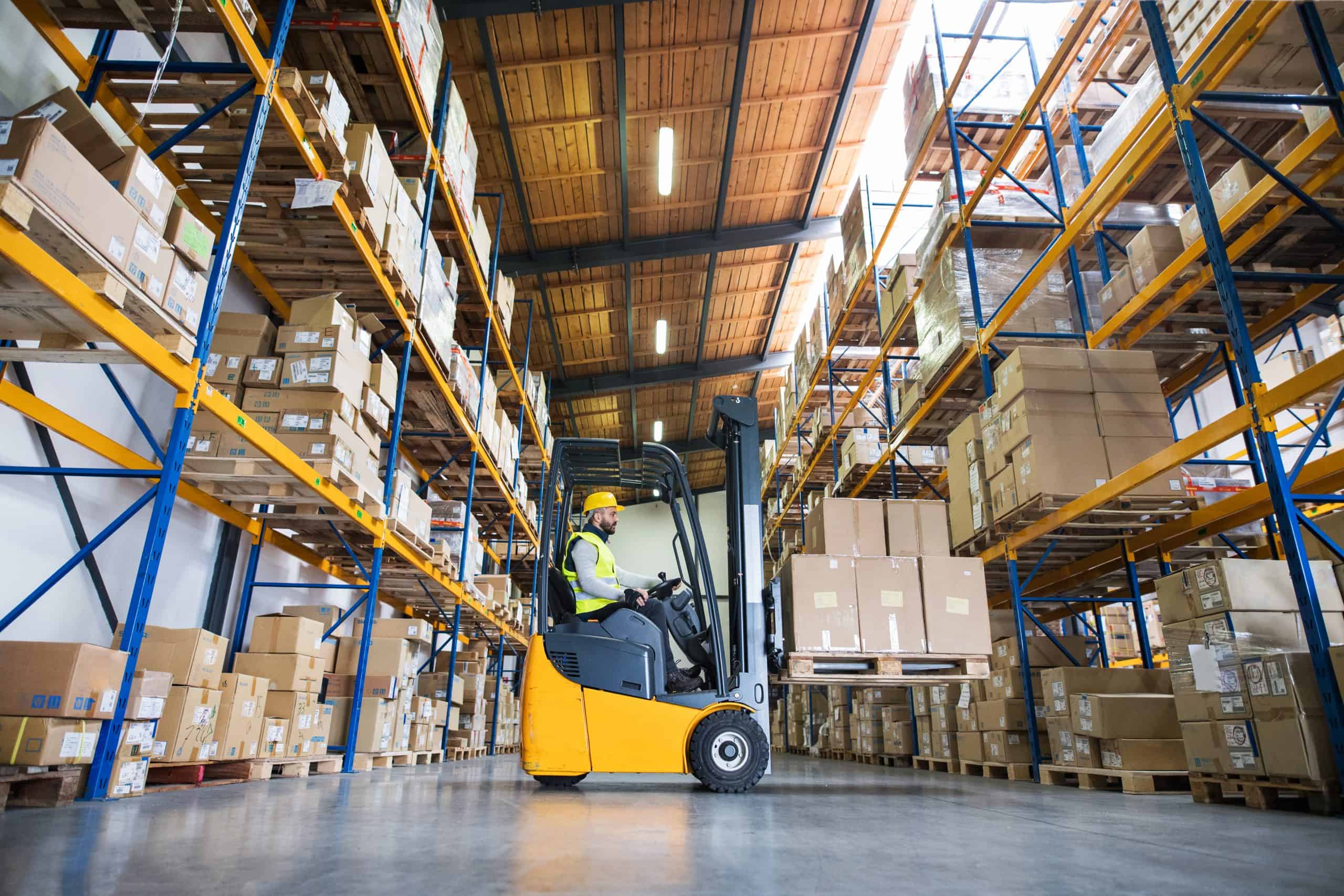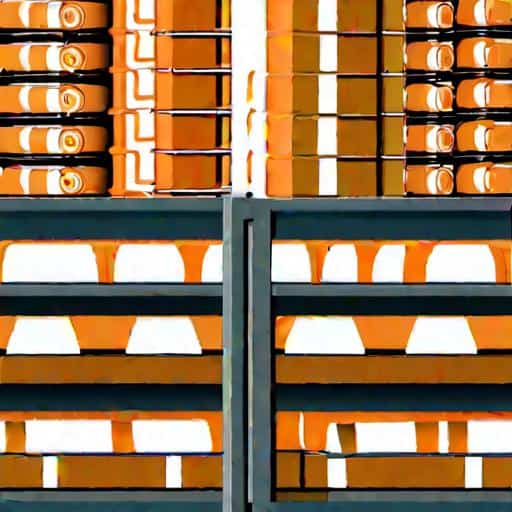
As a business owner, we understand that choosing a third-party logistics (3PL) warehouse for your company can be a critical decision. Not only does it impact your supply chain efficiency, but it also plays a significant role in customer satisfaction. In this article, we will help you navigate the complexities of selecting the right 3PL provider, discussing crucial factors to consider, and how to ensure a successful partnership.
Efficient logistics is the backbone of any flourishing business, and outsourcing to a 3PL can provide numerous benefits. By collaborating with a skilled and reliable 3PL warehouse, we can focus on our core competencies, trusting that our inventory management, transportation, and order fulfillment needs are in expert hands. However, it’s important to remember that not all 3PL providers are created equal. We must diligently research and assess potential partners, considering factors such as cost, scalability, and technological capabilities, to find a 3PL warehouse that aligns with our business goals.
Understanding 3PL Warehouses
In this section, we will dive into the world of 3PL warehouses, their various services, and industry applications. Third-party logistics (3PL) providers specialize in outsourced logistics services, which can include warehousing, inventory management, storage, and related activities. By utilizing a 3PL warehouse, companies can better focus on their core business processes and leave logistics to the experts.
Types of 3PL Warehouse Services
There is a wide variety of services offered by 3PL warehouses, catering to various business needs. Let’s take a look at some of the main types of services:
- Storage: This is the most basic service provided, where the 3PL warehouse stores and maintains inventory for a company.
- Picking and packing: The 3PL warehouse fulfills customer orders by picking, packing, and shipping the required items.
- Inventory management: 3PL warehouses oversee and manage inventory levels, reordering items as needed to prevent stockouts or overstock situations.
- Transportation and distribution: Some 3PL warehouses offer transportation services, ensuring that products are delivered to customers or distribution points in a timely and efficient manner.
- Value-added services: Additional services, such as product customization, kitting, and assembly, can be offered by certain 3PL warehouses, adding value for customers.
When selecting a 3PL warehouse, it’s essential to assess your business requirements and select a provider that can cater to your specific needs.
Industry Applications
3PL warehouses cater to a wide range of industries with various demands. Some of the common industries that rely on 3PL warehouses include:
| Industry | Common Requirements |
|---|---|
| Retail | High volume inventory management, eCommerce order fulfillment, transportation services |
| Manufacturing | Raw materials storage, finished goods management, kitting and assembly services |
| Healthcare | Temperature-controlled storage, strict inventory control, secure transportation |
| Food and Beverage | Temperature-controlled storage, strict inventory and expiration date management, food safety compliance |
| Technology | Sensitive equipment handling, customizable packaging, high-value product security |
Depending on the industry, 3PL warehouses must adhere to various regulations, standards, and guidelines to ensure proper handling, storage, and distribution of products. It’s crucial to research and select a 3PL warehouse that understands and complies with industry-specific requirements.
Evaluating 3PL Warehouse Capabilities
When choosing a 3PL warehouse, it’s important for us to evaluate their capabilities to ensure they can meet our specific needs. In this section, we’ll discuss four key aspects to consider when assessing a 3PL partner: Facilities and Resources, Inventory Management Systems, Customization and Flexibility, and Expertise and Stability.
Facilities and Resources
To ensure efficiency and scalability, we should look for 3PL warehouses with modern and well-equipped facilities suitable for our specific type of products. The warehouse should have enough resources for packing, kitting, and handling both forward and reverse logistics. In addition, they should be capable of providing adequate space for our inventory, as well as sustain growth in the future.
Shipping costs and transportation options are important factors for our supply chain’s success, so it’s essential to inspect the warehouse’s access to different shipping carriers and services. Here are some points to consider:
- Proximity to major transportation hubs
- Capacity for fast shipping and handling
- Access to reliable shipping providers
Inventory Management Systems
Effective inventory management is crucial for smooth warehouse operations, so we must ensure that the 3PL provider has a robust and user-friendly system in place. This includes real-time tracking, efficient picking processes, and seamless communication between all parties involved.
Furthermore, integration with our current systems is necessary to avoid any potential disruption to our fulfillment services. We should assess the following aspects of the 3PL’s system:
- Data accuracy and accessibility
- Automation and process efficiency
- Compatibility with our existing systems
Customization and Flexibility
Every business has unique requirements, so it’s important for our chosen 3PL to offer customization options and be adaptable to our specific needs. This can involve unique packaging solutions, tailored fulfillment strategies, and specialized services like kitting and reverse logistics when necessary.
Moreover, the warehouse should be capable of scaling with our growth and adjusting to fluctuations in demand. Flexibility is key to ensure we can always meet our customers’ expectations.
Expertise and Stability
The reputation and financial stability of our 3PL partner speak volumes about their ability to effectively manage our supply chain. It’s essential for us to choose a warehouse with a proven track record and strong customer service, expertise in our industry, and ethical treatment of their employees.
A stable and knowledgeable 3PL will help ensure the success of our outsourcing efforts and improve our overall fulfillment experience.
Selecting a 3PL Warehouse for Your Business
Selecting the right third-party logistics (3PL) warehouse for your business is crucial for optimizing your supply chain management and order fulfillment. In this section, we will explore the process of establishing your business needs, researching and vetting potential 3PLs, evaluating costs and fees, and emphasizing communication and trust.
Establishing Your Business Needs
Before searching for a 3PL partner, we need to evaluate and understand our organization’s specific needs. Consider the following factors:
- Inventory management and order volume – How much inventory will you be storing and what is your average order volume?
- Ecommerce fulfillment – If you operate an ecommerce store, ensure the provider can handle the complexities of ecommerce fulfillment.
- Transportation management systems – The 3PL should have robust software that can streamline communication between sales channels, transportation partners, and your team.
- Handling and equipment – What type of handling equipment and facilities are required for your products? Ensure the provider has the necessary equipment for your industry.
Researching and Vetting Potential 3PLs
Once we have defined our business needs, it’s time to research and vet potential 3PL warehouses. Here are some crucial factors to consider when vetting potential 3PLs:
- Industry expertise and experience – Check if the 3PL has experience working with other organizations in your industry.
- Service excellence and insurance options – Evaluate their track record in providing excellent service, as well as their insurance options for your inventory.
- Facilities and location – Geographical location is important for efficient transporting and delivery. Ensure the 3PL’s facilities can accommodate your inventory management requirements.
Evaluating Costs and Fees
Costs and fees are an essential factor when selecting a 3PL warehouse. Make sure you understand and compare the following components:
| Fee Type | Description |
|---|---|
| Storage fees | Cost for storing inventory in the warehouse |
| Fulfillment fees | Cost for picking, packing, and shipping orders |
| Receiving fees | Cost for receiving and processing incoming shipments |
Ensure you also inquire about any hidden fees, such as long-term storage fees or additional equipment fees, to avoid any unpleasant surprises in the future.
Communication and Trust
Lastly, it’s crucial to establish open communication and trust with the potential 3PL partner. A successful partnership lies in:
- Aligned values and flexibility – Ensure that the 3PL is aligned with your organization’s values and can adapt to your business’s changing needs.
- Transparency and communication – A good 3PL partner will maintain open communication channels and provide you with regular updates on your inventory status.
By following these guidelines, we can make an informed decision when choosing the perfect 3PL warehouse for our business needs.
Special Considerations in Choosing a 3PL Warehouse
When selecting a third-party logistics provider, there are several special considerations that need to be taken into account. In this section, we will discuss industry-specific compliance regulations, global shipping and logistics, as well as omnichannel and ecommerce fulfillment.
Industry-Specific Compliance Regulations
Depending on the industry your business operates in, certain compliance regulations may need to be followed by your 3PL warehouse. Let’s take a look at some examples:
- Apparel: In the fashion industry, proper labeling of garments is crucial to avoid confusion and maintain accurate inventory levels. Your chosen 3PL should have an established labeling system in place.
- Pharmaceuticals: Pharmaceutical businesses must adhere to strict FDA regulations regarding the handling, storage, and distribution of products. Ensure your 3PL warehouse follows these guidelines and has a team trained in pharmaceutical-logistics solutions.
Global Shipping and Logistics
As businesses continue to expand their operations globally, it’s critical to have a 3PL warehouse that can handle global shipping and logistics. This includes:
- Understanding international import and export regulations
- Having the capacity for international shipping and delivery
- Creating logistic solutions that provide fast shipping and efficiency to minimize delivery times and maintain margins
Omnichannel and Ecommerce Fulfillment
Omnichannel and ecommerce fulfillment is an important aspect to consider when choosing a 3PL provider. Your selected 3PL should have the following capabilities:
- Integration with popular ecommerce platforms, making it easier for you to manage orders and inventory
- Efficient handling of high volumes of orders, especially during peak sales periods
- Fast shipping options to meet customer expectations and maintain a competitive edge
By carefully considering these special factors, you can ensure that the 3PL warehouse you choose aligns with the unique needs of your industry, global shipping requirements, and your ecommerce fulfillment goals.


